Working with Communities – It Takes a Village to Educate a Child
In the ‘Ground Zero’ piece, we narrate the experiences gathered by four non-profits from India, who have community engagement at the forefront of their efforts. These NGOs are partnering with communities to bring about sustainable and systemic changes in the education system, so that it can productively cater to the most marginalized children.
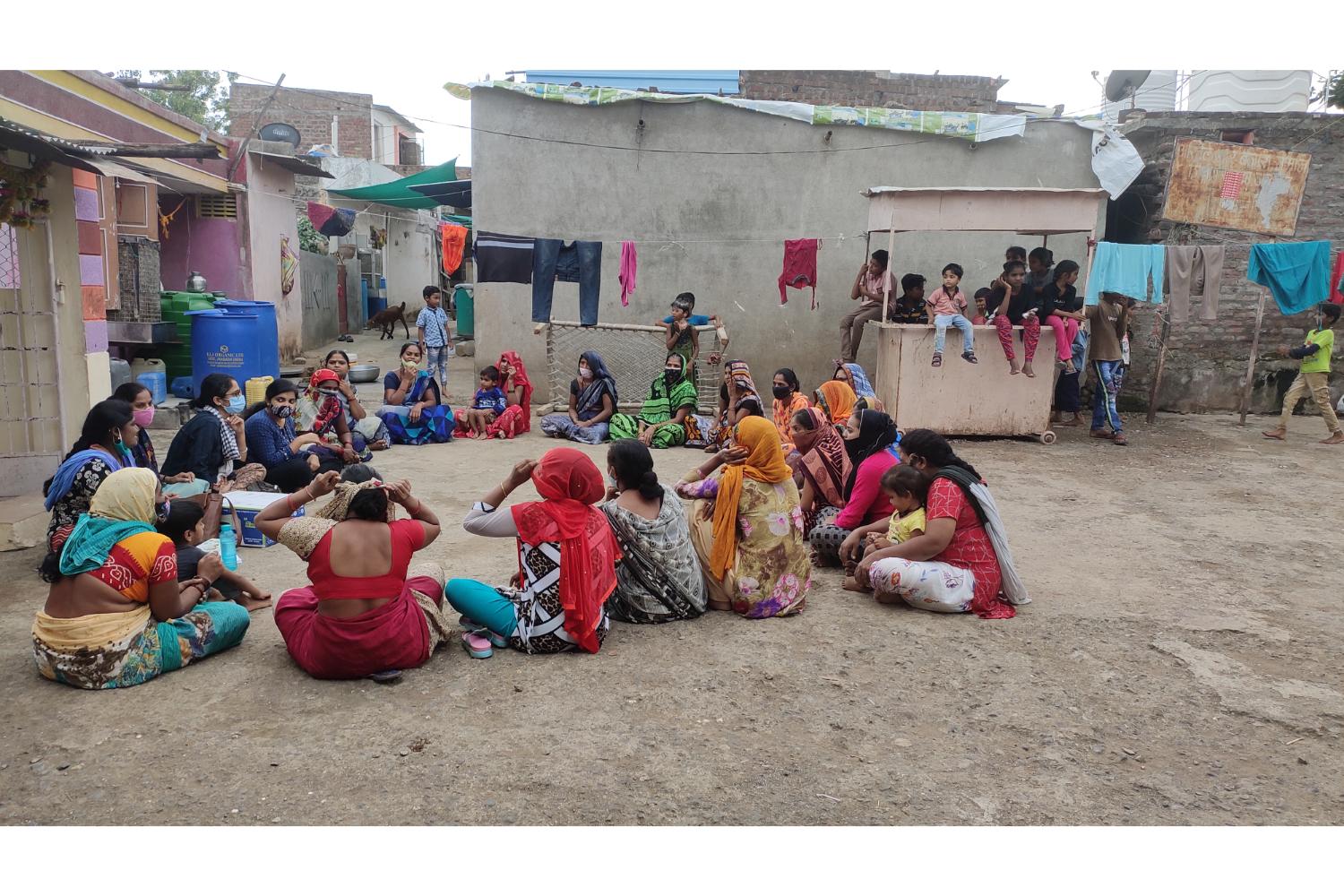
What are the contours of the relationship of organizations with the communities they work with? How has this evolved over the years? How do different people in the community perceive organizations and their work? How do organizations look at their role with respect to a particular community?
In this article, we speak with four non profits working across geographies and with different vulnerable groups. These organizations work with community members in their search for dignified lives by helping them break the cycle of systemic injustices. They are building partnerships with communities by .capacitating members from communities and envisioning sustenance of initiatives.
Karunar Kheti Trust (KKT)
Founded in 2019, Karunar Kheti Trust (KKT) is a non-profit organization based in a tea plantation in Jorhat, Assam. KKT primarily works with the tea plantation and traditional village communities in the interconnected areas of education, healthcare and livelihood.
After the Indian Railways and the Armed Forces, the tea industry of Assam is the third largest employer in India. More than 150 years ago, colonial rulers established the tea plantation industry. People hailing from varied rural regions, tribes, and speaking different languages were brought to Assam to work on these plantations.
Arjun Trivedi, co-founder of KTT shared, “In both the colonial and postcolonial times, people working in these tea plantations have remained trapped in an intergenerational cycle of disempowerment. They have been given little or no opportunities for social, economic and political growth.”
In 2018, Arjun started teaching local children across age groups. He was, in due course of his other volunteer efforts of engaging with matters of livelihood and health in the area, approached by a few relatives of the children and other community members. They requested him to set up a school that could provide quality education.
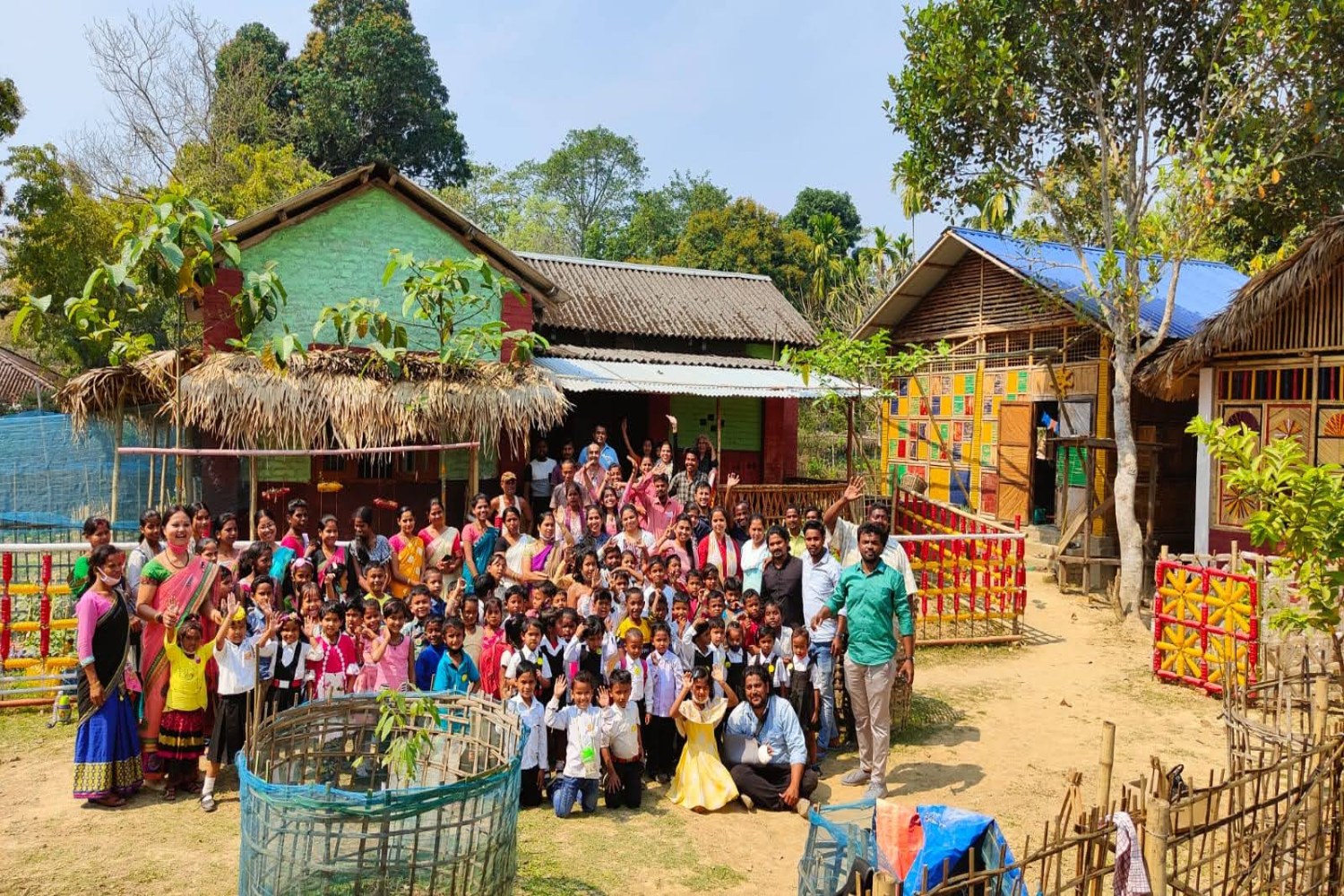
Arjun shared, “The youth and other community members who joined the efforts became the embers in this movement of empowering the tea plantation workers community.” He added that when a community has faced cyclical oppression for so long, a way to participate in an empowered way with the public system is by starting with the smallest possible step and bringing together those who share the same vision.
In January 2020, through collective efforts, Selenghat Valley School was established. Children in grades Nursery, Lower Kindergarten and Upper Kindergarten were enrolled. KKT also runs a Student Resource Centre. This center supports local children enrolled in government schools. Those who have dropped out also come to the center to attend classes.
The trust reposed by the community in their work has been organic. Arjun recounted, “There is still some skepticism about our pedagogy and its impact on children’s learning. Parents, of their own accord and through systematic processes to engage them, observe how we conduct our classes. They are unsure about how this new model of experiential learning is used in schoolwork and how the children will learn by following their curiosity. It must be proven that children can joyfully learn in a stress-free environment.
In the coming years, Arjun wishes that the community members lead the efforts of the organization. For that to happen, he recognizes that capacity building in modern systems is important. For instance, capacity building processes, particularly in systems of management, administration, finance and accounts, governance, etc. need to be established. Development of the community’s confidence is critical. This is especially so, as these communities have been historically marginalized.
Arjun shared, “I am currently leading the organization in such modern systems and raising financial resources. I think we will start planning how in the next five years, people can anchor such efforts. Then we will have taken even huger strides towards becoming an organization built by the people and for the people.”
KKT presently continues to function as an organization independent of the tea plantation management. Arjun shared that matters between workers and the management are complicated and complex. While they wish to facilitate conversations, they are not able to do so directly yet, as this would need a tremendous effort.
However, indirectly, because of the community-rootedness of their work where both the management and workers are in various direct and indirect ways connected with their work, each side is seeing the other in a positive and human perspective. This indirect conversation seems enough for now and something to be grateful for that they have been able to come so far.
This is the first time in the history of tea plantation workers’ community that a formal school built by the people of these communities is running. Their rights to access quality education have been ignored and marginalized for decades. Their reclamation of this fundamental freedom is gradual but empowering.
Klorofeel Foundation
Klorofeel Foundation is a non-profit organization working with tribal communities in the Rayagada district of Odisha. It focuses on improving the quality of education of children belonging to under privileged families.
Prior to founding Kloro feel Foundation, for more than a decade, the team members in their association with different organizations were working in the region on livelihood related interventions. The team was aware of the socio-economic context of the region and it was already familiar with the community members. Jiten Nayak, co-founder of Klorofeel Foundation shared that since the foundation of the trust built earlier was strong, they were able to capitalize on that in their interventions in education.
According to Jiten, “Students belonging to underprivileged sections of our country struggle to get an enabling learning environment. At Klorofeel, we believe that to guarantee a good learning experience, efforts inside the schools, at homes, and in community spaces are vital.” Klorofeel runs learning centers that are based on a community-led education model. Community learning centers are envisioned to nurture students, by supplementing and complementing governmental efforts inside the schools, to become socially and ecologically responsible and financially independent. Klorofeel works with stakeholders across the community – children enrolled in the learning centers, their parents (especially mothers), and local youth facilitators (saathis) at the centers.
Mothers of the children enrolled have organized themselves into voluntary Mothers’ Education Committees. The Klorofeel team actively encourages them to partake in decision-making activities such as identifying saathis for the learning centers, spaces where the centers could be set up, etc. They are also encouraged to develop an interest in closely engaging with and monitoring the learning activities of their children, both at the centers and at home.
Jiten shared, “Community members trust our intentions because we involve them in decision-making and honor their decisions. If a saathi is not coming regularly to the learning center, or if they feel a saathi is not performing well, they reach out to our team, and we try to address the issue. They have also started sharing their own aspirations and expectations from us. For instance, an intern from Kerala was working with us and interacting in English. The mothers shared that they would also want their children to be fluent in English.”

Jiten recounted that when they set up the learning centers, they encouraged the mothers to visit and observe the activities. A few months later, the Klorofeel team set up a festival where the children had to sell mangoes in their community. These children, aged less than ten years, were confidently interacting with everyone and kept track of the transactions. Parents realized that gradual changes in children’s learning levels have taken place. Their initial perception of education that it has only functional values is changing.
The Klorofeel team envisions that community members move in the direction of managing both financial and institutional sustainability of the learning centers. The team tries to involve community members, especially the mothers’ committees, proactively in planning activities and in engaging with saathis in the learning centers. They also wish that members gain the confidence to engage with the school system through School Management Committees and reach out to other relevant people in the government system to demand quality educational resources. The team believes that a quality education ecosystem can thrive only when community members are actively involved and empowered to lead the efforts.
Sajag
Set up in 2016, Sajag Trust works with children from economically disadvantaged backgrounds in Kalyan town located on the outskirts of Mumbai. Sajag runs a learning center and a community library that focuses on building foundational literacy, numeracy, reading habits and familiarity with computers for children in primary grades. The parents are engaged primarily in daily wage labor as waste-pickers, domestic workers, drivers, contractual labor, etc. These families have migrated from the drought prone regions of Maharashtra and more recently, from Bihar and Uttar Pradesh. The children are enrolled in semi-private or government-aided schools.Sajitha, co-founder of Sajag shared, “Most of the parents did not have the opportunity to seek education beyond primary schooling. Consequently, students in the community have little or no support for learning. We were thus clear from the beginning that we must directly work with children to improve their learning outcomes. To make the children trust our vision, it was important to make learning joyful for them.” At Sajag’s learning center, the team encouraged children to do theatre, and participate in read-aloud sessions and other engaging activities. Children enjoyed these activities and sessions. They started reaching out to the team in matters related to their education as well.
The Sajag team felt that to build trust, it was important to listen to and incorporate children’s expectations. During one of the discussions, it realized that the children enjoy Ganesh Chaturthi festivities. Their experiences around it have been enriching for them. With support from the Sajag team, children wrote a story around the festival and performed it in their school. It boosted their confidence and helped in building self esteem. They became excited to share their learning and volunteered to mentor new students joining the learning center.
The team also closely works with parents. The latter were initially concerned that at the learning center children should not be engaged in anything harmful. Their fears were slowly allayed.Sajitha shared, “When we noted that a child was irregular, we used to visit their family. Interacting with the parents helped a lot. Monthly parents’ meetings paved the way to share their feedback and strengthened the efforts as well. Communication is important when you are working with communities. Parents used to be surprised when we visited, sat and chatted with them.”
Parents were also concerned that children at the learning centers play games and there is no concrete impact on their learning. In one of the parents’ meetings, parents were made to solve puzzles where they were required to solve math problems that included basic addition or subtraction and to make words using alphabets. They enjoyed doing these activities and could see how these could be relevant for their children’s learning and growth.
Sajitha shared that the efforts to develop a communication channel with parents has helped as they have started approaching the team without any hesitation. For instance, if parents have doubts about the school they need to send their children to, or the process of applying for seats reserved under the RTE Act, they reach out to the Sajag team.
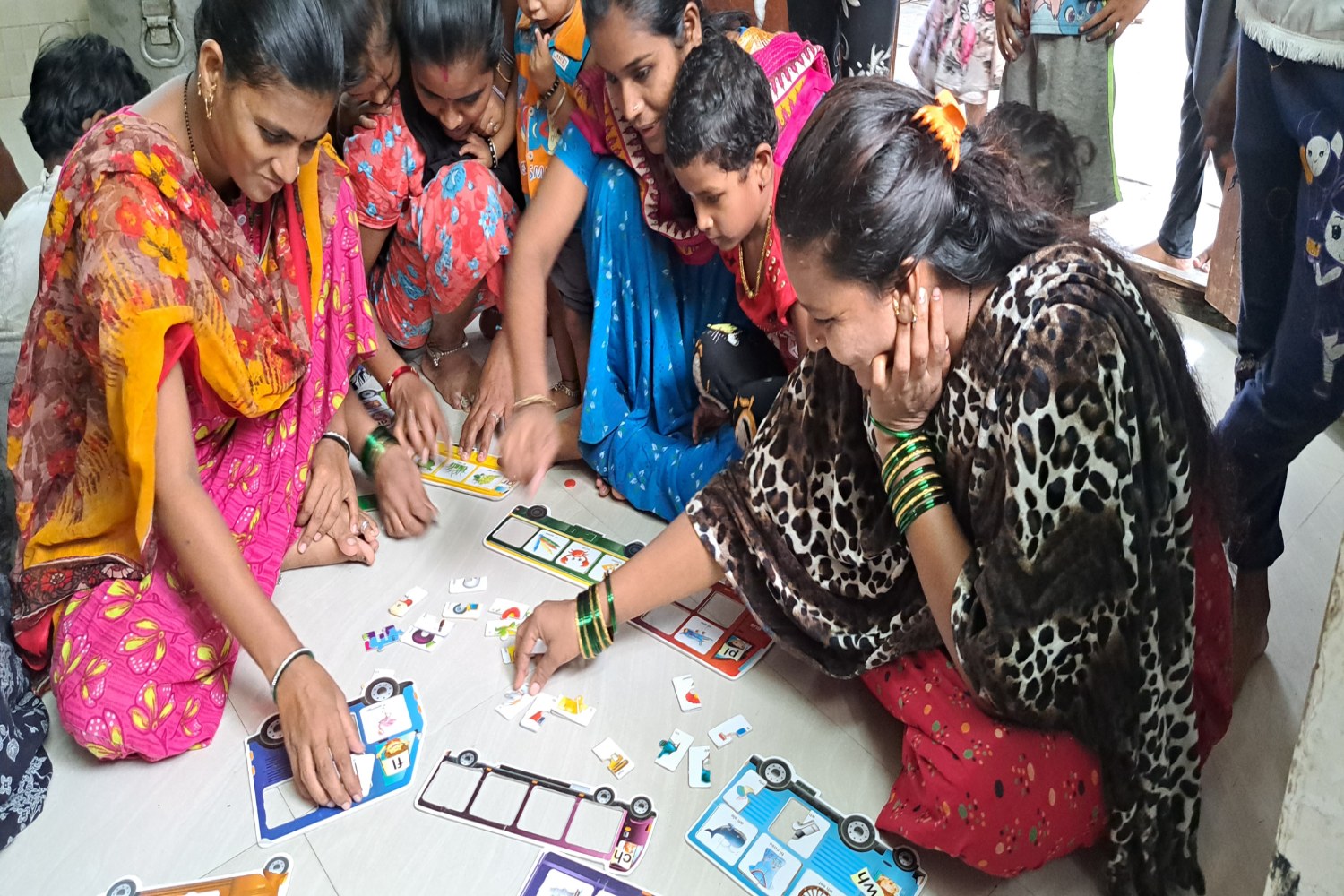
On the question of when the community could lead the initiative, Sajitha shared that the Covid-19 pandemic has made them realize that it is important to have members of the community partake in efforts. During the pandemic, with travel restrictions and fear of infection, one of the older children in the adult literacy program volunteered to take classes for the younger ones. The team hopes that more members of the community will join and lead such efforts.
Sajitha added, “Over the years, teachers at the learning center have also developed a sense of responsibility. They take the initiative to identify children who have not been enrolled in school and inform parents if the child is irregular in school or at the learning center. Earlier, the team used to help facilitate their home visits and share relevant information with them. However, recently the teachers confidently advise parents about schooling, admissions, etc.”
The Sajag team believes that quality education can become a reality for children from underprivileged backgrounds, when members of the community and other stakeholders in the ecosystem collaborate.
Vardhishnu
Vardhishnu is a non-profit operating in Jalgaon town in the state of Maharashtra. It provides foundational formal and informal education and skills to children from vulnerable backgrounds – especially child waste pickers and child laborers enrolled in schools – as well as to out-of-school children.
Pranali, co-founder of Vardhishnu shared, “In 2013, we were assisting another organization with a study analyzing the socio-economic background of 400 informal waste-pickers in Jalgaon. We asked them about their education levels, well-being, income, substance abuse, access to government services, what they think about society and how they think society views them. We realized that the preceding generations of this community had been deprived of a dignified life. We committed to working with the younger generation to help them break out of this cycle of intergenerational deprivation”
The community learning centers set up by Vardhishnu called ‘Anandghar’ are spread across Jalgaon, and nearby towns. These centers try to bridge the learning gaps for children who have never gone to school or those who have dropped out of the formal education system. The first community learning center was set up in an open space in a temple visited by waste-picker families and other community members. Since thicenter was located in an open space, Pranali shared that parents were gradually able to build trust in their work and vision because they used to frequently drop by and observe the activities.
Pranali added, “It was heartening to see that during the time of classes from 5 p.m. to 7 p.m., community members ensured that no one sits near the center and drinks, and that no one interrupts the sessions.
The Vardhishnu team intended their relationship with the community to be one of partnership. After the initial months, their efforts to build rapport with community members bore fruit and they were able to develop a friendly relationship. If parents insisted that their children be re-enrolled in schools, the team visited them to ask a few things and to orient them to the support their children would require.
Pranali shared that when they visit homes, parents get happy with small gestures of the team accepting the tea or water being offered. Gradually, they have gained access to the homes and the lives of community members where they are often invited to celebrate festivals or join on somber occasions.
Pranali says, “The team has female educators who sometimes stay till late in the evening. There has never been any untoward incident against them. The community offers a protection balloon to all our team members. We have never faced any problems. Community elders also keep checking with us to see if classes are going smoothly and whether we require any support.
Substance abuse by children is a huge problem that Vardhishnu is trying to address. Pranali shared that a couple ran a grocery shop in the community and they used to sell tobacco. The team convinced them that they should not sell tobacco to the learning centers’ children. After some convincing, they obliged. The cooperation offered by community members for Vardhishnu’s vision is commendable
In the last few years, parents have proactively reached out to the team to convey instances where if they felt that any educator was not performing as per expectations, and the kids were not being taught well. The team is confident that the waste-pickers community is reimagining a future where the next generations lead dignified lives.
In Conclusion
Organizations working with communities have realized that this journey of improving quality and access to education is an arduous one. They all admit that envisioning the community at the forefront of leading efforts, respecting their decisions, and partnering with them, can bring sustainable and systemic changes.

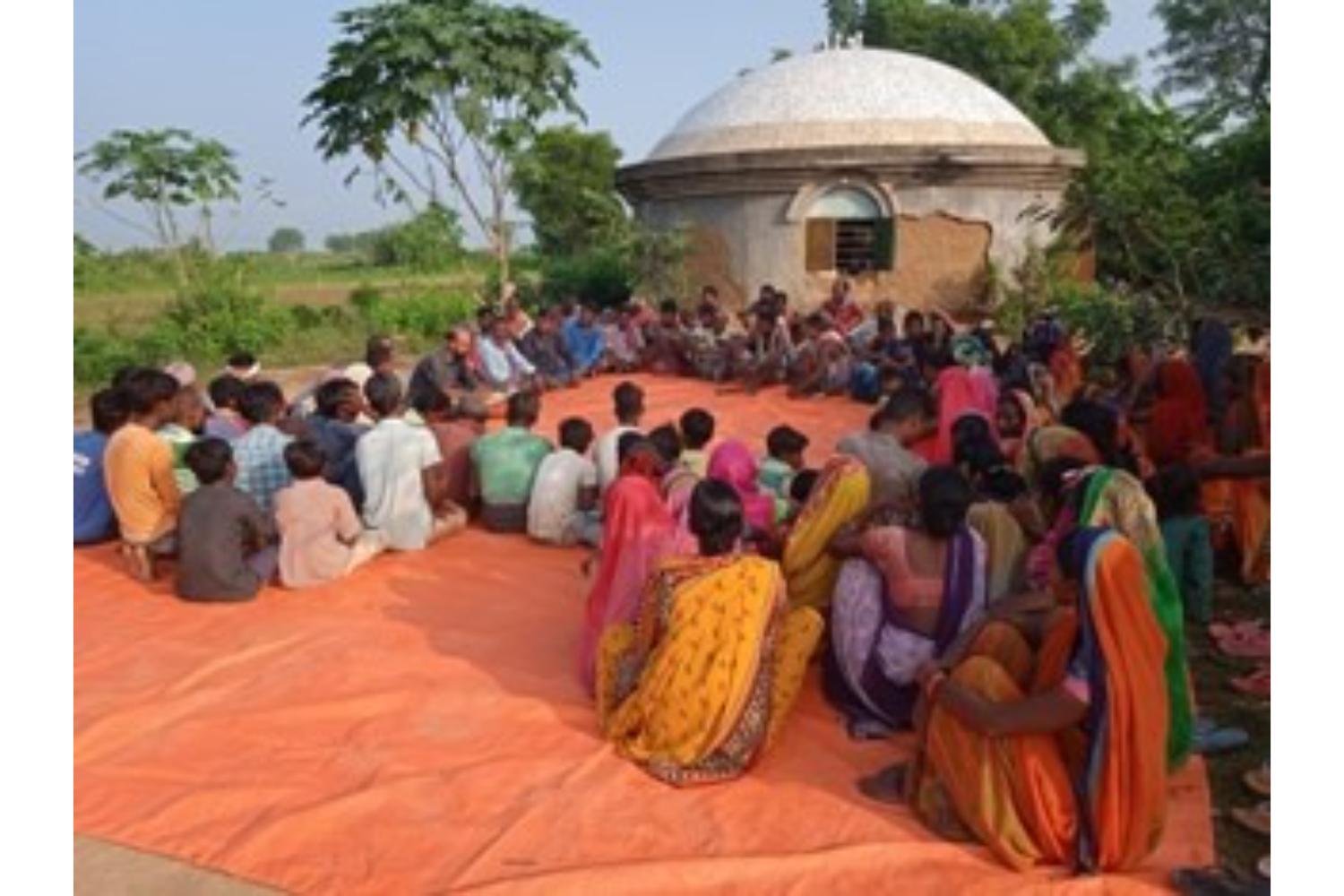
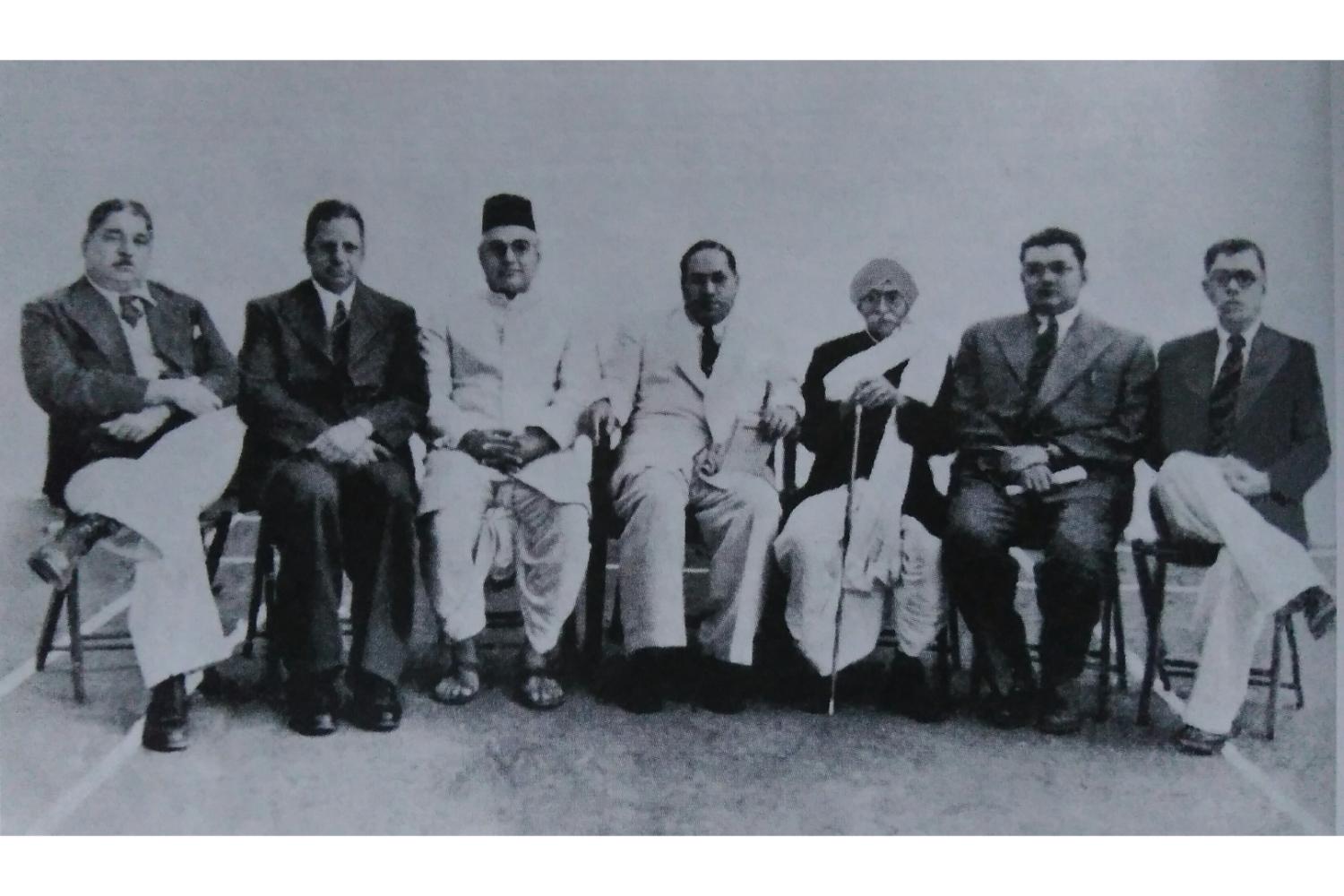
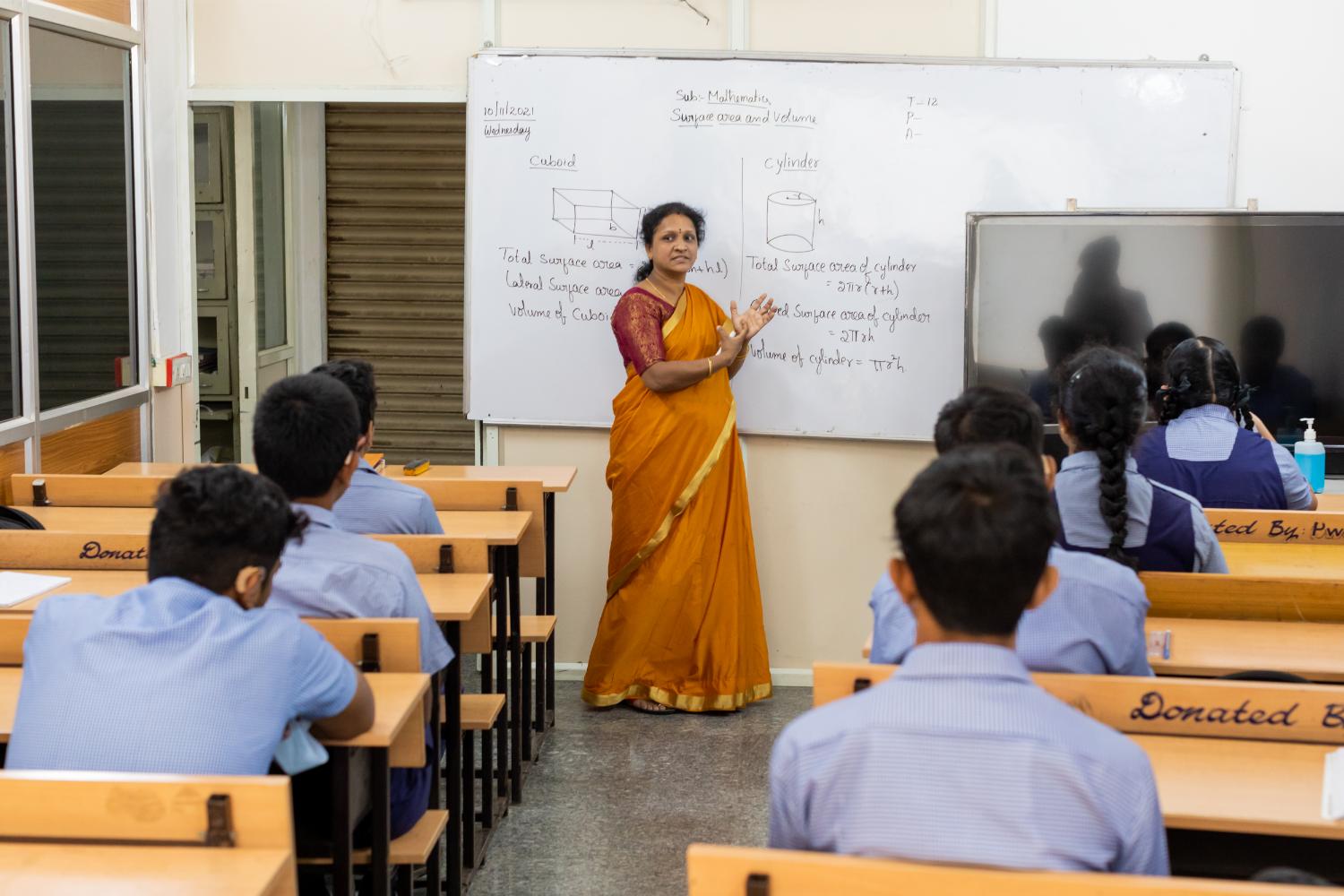
No approved comments yet. Be the first to comment!